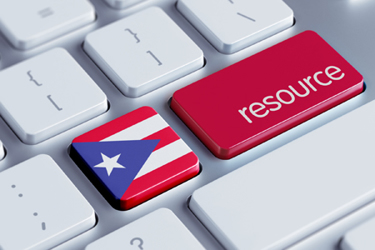Lentiviral Vectors And The Island Of Partnerships

By Louis Garguilo, Chief Editor, Outsourced Pharma

You need lentiviral vectors. Apparently, so do a lot of others.
Demand for lentiviral vectors is estimated to surge at a compound annual growth rate (CAGR) of 11.4 % until 2032, according to one study.
A second research report says the worldwide lentiviral vectors market is expected to reach $829 million by 2030. (One geographic region, North America, accounted for 35.5% of global market share in 2021.)
I’ve learned of a location where you may be able to grab some new capacity – and related cell and gene therapy (CGT) services.
This capacity and these services reside within an emerging development and manufacturing business model.
And that model has returned me to Puerto Rico (figuratively). Readers know I periodically monitor the bio/pharma industry on that biopharma-important island. (see: Puerto Rico Back On The Map Of Pharmaceutical Locations; But Where In The U.S.? Puerto Rico In The Reshoring Race.
This time my path there was less intentional and more circuitous, originating in Massachusetts, actually, with the editorial “A Bridge to Capacity For The Cell & Gene Industry.”
There we documented the growth of “bridge facilities” or “cleanrooms on demand,” models in which CGT sponsors lease (often short-term) fully built out GxP-qualified capacity. However, separate from the CDMO model, sponsors bring their own skilled labor to perform the work in these facilities, and the sponsor is fully responsible for production.
In Puerto Rico, the operational model is served up by a partnership development management organization (PDMO) that also supports sponsors in creating “autonomous cGMP capabilities” in external infrastructure.
Operational since 2021, OcyonBio is a PDMO in Aguadilla, Puerto Rico, with international customers, including Reliance Life Sciences of India.
But a point of difference from other emergent for-lease facilities we’ve discussed is an emphasis on the skilled workforce this PDMO can provide to augment the sponsors’ skilled professionals, if needed.
Of course, the PDMO acronym itself is not shiny new, but the model has taken on a higher level of innovative implementation reflecting the changing needs of today’s CGT industry.
The Set Up
 Alexandra Ortiz-Rosa is Director, Cell & Gene Therapy Unit, for OcyonBio. I spoke at length about the operational model with Ortiz-Rosa, a molecular biologist by training who joined the PDMO last year, and today is happily vexed with vectors.
Alexandra Ortiz-Rosa is Director, Cell & Gene Therapy Unit, for OcyonBio. I spoke at length about the operational model with Ortiz-Rosa, a molecular biologist by training who joined the PDMO last year, and today is happily vexed with vectors.
(She was also willing to talk with me about her personal experiences as a woman in an industry that has been dominated by males. Look for that discussion in an upcoming editorial.)
As documented previously, periodically Puerto Rico suffers from catastrophic weather patterns. It has a continual battle with keeping the power on during (and after) these events. While impressive mitigating actions and infrastructure have been put in place, this remains of concern.
Another caveat here, if you will, and one not dissimilar from the early-stage biopharma sponsors we interview – plans about what an organization can and will do need to be leavened with the fact much remains to be seen.
Nonetheless, today OcyonBio’s campus has a combined 200,000 square feet, divided into individual development and manufacturing spaces, with some capacity now open for business, and more opening soon.
The campus operational capacity is approximately: 40% for both biotechnology and CGT, with substantial capabilities for viral vector manufacturing, including lentiviral, retroviral, and adeno-associated platforms.
The existing facilities were acquired through partnerships with the Puerto Rican government, and are former Hewlett Packard facilities (that also were once an Avon manufacturing center).
The investment to purchase/build out, and hire/train the skilled workforce, has thus far come from two co-founders, Robert Salcedo and Daniel Chang, both with backgrounds in biosimilar development.
“We are currently working with other investors, but up to this point, we’ve been funded by our co-founders,” says Ortiz-Rosa.
And, of course, with government assistance.
“Puerto Rico has had a very large pharma industry presence,” says Ortiz-Rosa. “Part of what Puerto Rico wants to do is bring it back, and strengthen it to rival more of our former biopharma glory. The government has put in place many mechanisms to attract companies to establish operations here.”
Some of those incentives flow directly to OyconBio customers (not unlike the incentives other locales around the world provide biopharma companies).
Specifically, says Ortiz-Rosa, “the Puerto Rico government offers companies a range of cash backs and incentives for equipment & materials purchased and utilized on the island.”
These reimbursements come from the Department of Economic Development and Commerce (DEDC). U.S. companies that have benefited substantially to establish operations in PR include Abbott, Amgen, BMS, J&J, Lilly, Merck, and Pfizer.
Island Workers
OcyonBio has created a database currently with over 600 GMP-experienced candidates at all academic levels. The database “facilitates the identification of profiles to match client needs.”
When the rest of the world struggles to obtain talent, why is it available in Puerto Rico?
“For starters,” says Ortiz-Rosa, “that big pharma presence we had on the island for decades. Some of the industry may have left or cut down operations, but thousands of workers remain.”
The university system has also been designed to support this critical sector.
“Most of our universities on the island are focused on STEM,” she continues. “Our universities have been a pipeline for scientists and engineers. We have a lot of industrial biotechnology majors.” And, she adds, “there are a lot of PhDs pursuing their professional careers in the U.S. who, given the opportunity, would come back to the island.”
OcyonBio is developing its own “speed-track training program,” focused on CGT, as part of its OcyonBio Academy (OBA) “to address gaps when switching gears from biotech into cell and gene.”
“In Puerto Rico, we like to say we speak three languages: Spanish, English, and GMP. We want to refine that, and develop Puerto Rico into the next CGT hub.”
As Outsourced Pharma readers know, so do a plethora of other locations around the world.
But once again, we’ll find a particular service model – this one called the “SME mirror model” – that could help make a difference. That’s up in part two.
